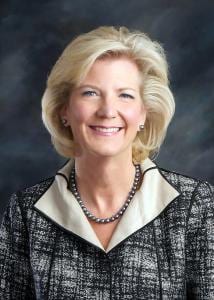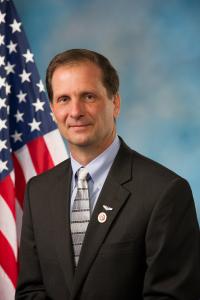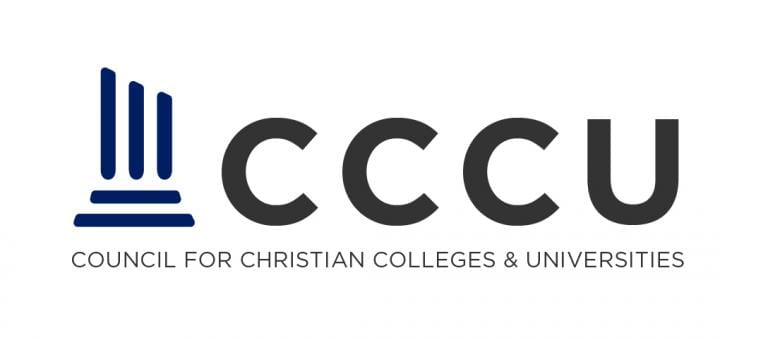Last Friday Rep. Chris Stewart (R-Utah) introduced a new bill in the U.S. House of Representatives: the Fairness for All Act, an attempt to reconcile LGBT rights with religious freedom. One of the religious organizations backing the bill is the Council for Christian Colleges & Universities (CCCU), whose president, Shirley Hoogstra, was kind enough to answer a few of my questions about Fairness for All.

For those who haven’t been following this story until now… What is being proposed in Fairness for All?
For the past three years, the CCCU has been engaged in conversations with a broad coalition of faith and LGBT leaders, two “sides” that have often viewed their protections as being violated by the existence of protections for the other.
The result of this dialogue is a bill called Fairness for All, a balanced legislative approach that preserves religious freedom and addresses LGBT civil rights under federal law.
Fairness for All is centered on two core principles:
- Religious persons should not be forced to live, work, or serve their community in ways that violate their sincerely held beliefs.
- No American should face violence, harassment, or unjust discrimination, or lose their home or livelihood, simply for being lesbian, gay, bisexual, or transgender.
Fairness for All provides long-term protections for Christian higher education and other faith-based organizations. The proposed legislation ensures that Christian colleges and universities can hire for mission, maintain their accreditation, maintain access to federal student aid, maintain their tax-exempt status, and continue to offer professional licensure — all while remaining true to their religious convictions.
Tell us a bit of the history of FFA: when did the CCCU begin to consider advocating for it? Why did it come back into the spotlight this year?
Over the last decade, Christian colleges and universities — along with adoption agencies, rescue missions, and others — have been at the tip of the spear for religious freedom challenges, many of which have stemmed from the expansion of LGBT civil rights. These challenges make it possible to imagine a future where Christian colleges that maintain a biblical perspective on marriage and sexual ethics lose accreditation, community support, partnerships, and grants, and where their students lose access to student aid, practicums, and professional licensure because of their religious beliefs and practices.
While executive orders and attorney general memos on religious freedom are helpful, they have a possible built-in expiration date— they can simply be undone by a subsequent president. Likewise, while litigation will always remain necessary to overturn clear constitutional violations, the court strategy is limited to the question presented and offers a piecemeal approach to addressing the numerous tension points that have or will arise between government, Christian higher education, and other religious organizations. Further, research by law professors shows that when religious freedom protections are created by legislation, the Supreme Court upholds them almost 100 percent of the time. But when the First Amendment is the only basis, religious freedom wins only 50 percent of the time.
In short, in addition to short-term executive orders and the Constitution itself, legislation adds a long-term, comprehensive, certain, and specific way to secure religious freedom protections for hiring, funding, accreditation, and more for Christian higher education and many other religious organizations and interests.
This spring the U.S. House of Representatives passed the Equality Act, a bill that codifies sweeping LGBT civil rights at the expense of religious freedom. As written, the Equality Act would be devastating for Christian higher education, as it would threaten every Christian college and university’s ability to deliver on its missional promise. The Equality Act would also impact churches, hospitals, relief agencies, and businesses large and small.
We are working with a broad coalition of religious organizations and LGBT organizations who believe it is essential that any protections for LGBT persons be paired with the essential religious freedoms that maximize freedom for all. The way forward is proposed legislation called Fairness for All, which allows the religious and LGBT communities to resolve conflicts in a comprehensive, balanced, and enduring way. This approach represents two groups who have been historically at odds coming together to acknowledge deep differences but also a common desire to lead proactively to solve real problems for the most Americans. And, most importantly, Fairness for All protects our convictions as Christians and recognizes the needs of our LGBT neighbors.

“Congressman Chris Stewart doesn’t expect his bill to pass,” reported Christianity Today on Friday. “But he is proposing the Fairness for All Act anyway.” What is the purpose of introducing this type of bill? If not to secure passage this session, is there a longer-term strategy?
To answer this question, we first must truly understand the landscape of legislation activity. Here is where the basic civics course from high school is applicable—all parts of bill making in a democracy serve a purpose.
Why are bills introduced and how do they become law? Simply put, once a bill is introduced, usually in one chamber, a committee of that chamber schedules hearings on the proposed legislation. Sometimes those hearings result in a bill being edited to address issues raised at the committee hearings. The Equality Act is seen as a “one-sided only” bill and those are generally understood to be “messaging” bills until they are taken up by the Senate. They are bills that allow the ideas within the legislation to be talked about more broadly by the legislators themselves, the media, interest groups, and Americans generally. That’s why bills have numbers and names, like the Equality Act or Fairness for All, so that the name itself is a shortcut message.
At the hearings for the Equality Act, the committee heard about the deficiencies in the Equality Act for women in sports, privacy concerns, and the negative impact on religious freedom protections. No changes were made to the Equality Act because the co-sponsors of the bill were not expecting it to be taken up by the current U.S. Senate, the next phase for a bill becoming a law. But the Equality Act is becoming socialized into the American psyche intentionally and with success. “Are you for equality?” is a predominant talking point within government, the media, and in the business world, for instance. All of the Democratic presidential and Senate candidates support the Equality Act. Democratic presidential town halls, like the one on CNN on October 10, have discussed the Equality Act at length. Just like marriage equality was socialized so that people became more and more comfortable with same-sex marriage, the same strategy is being deployed at the American public to be socialized about LGBT civil rights.
There is a corresponding need to remind the American public of the importance of living one’s faith freely in America while also being for the wellbeing of LGBT Americans. One-sided legislation does not often sit well with Congress. Just as one-sided legislation like the First Amendment Defense Act, which called for religious freedom protections at the expense of LGBT rights, did not sit right with Congress, one-sided legislation like the Equality Act, which calls for LGBT protections at the expense of religious freedom, should also not sit right with Congress.
Fairness for All is a “both and” bill — meaning the hard work of negotiating the competing interests of proposed legislation has already been done, an effort representing almost three and a half years of work. Fairness for All was negotiated with both LGBT advocates and religious liberty advocates. With both vigor and respect, the two sides asked each other, “What do you need to be at your best in America? What are important ways that you want to live your life?” The two sides differ on many fundamental beliefs, but both sides believe that in America, groups that believe differently can strike common ground for reasonable pluralism.
So back to your question. The prediction is that the current U.S. Senate will not take up the Equality Act (as currently drafted) or Fairness for All before the 2020 election. However, if the Senate were to switch to a Democratic majority, it is predicted that a Democratic Senate would do away with the 60-vote requirement to pass legislation, hold Senate hearings on the Equality Act, and pass it or a version of it. A recent unknown variable in any prediction is how the impeachment discussions will affect a 2020 election for the Senate, House, and the presidency. President Trump has spoken out in favor of LGBT rights and has also made religious freedom a key element of his campaign. He has influential advisors in the White House on both sides of the issue.
If the pressure remains high for both U.S. Senators and Representatives to be “for equality,” those who understand the shortcomings of this one-sided only bill will be more and more interested in the carefully vetted and negotiated provisions of the proposed Fairness for All legislation. Fairness for All is about bringing real solutions and assistance to fair-minded legislators. Current legislators do not want to be against the needed wellbeing of LGBT Americans, but they cannot support a bill that grants rights to one group while creating devastating effects to another valued group of Americans. Fairness for All is the better way forward; a more complete answer. It represents thought leadership for a contentious yet important conflict.
Higher education should serve the nation in proposing solutions for difficult civic problems. Christian higher education is especially equipped because we value broad, deep, and passionate faith expression while believing in the great commandment to love God and to love one’s neighbor.
By introducing Fairness for All, the provisions of that bill can be discussed and socialized within the media, business, and the American public. It tees up the ability to discuss the role of living with deep difference but with respect. For centuries, the American experiment of democracy allows people to disagree and to be offended by another American’s beliefs and actions, yet live civilly, safely, and under the rule of law.
We need to be prepared with well-conceived solutions if the current congressional gridlock of a Democratic House and a Republican Senate lessens, if there is a change in the executive branch, or if the Supreme Court is seen as not protecting LGBT people. Under any of these circumstances, the Equality Act could move for consideration by the Senate. It could be this year, 10 years from now, or never. But we believe that a prepared and proactive strategy (like Fairness for All) is a good strategy.
How much support for FFA have you heard from CCCU presidents, faculty, students, alumni, and donors?
The Council for Christian Colleges & Universities is a higher education association that represents more than 140 institutions in the U.S. from 35 different denominations, and we have a fiduciary duty to propose and pursue strategies that will help our members protect, preserve, and strengthen Christian higher education.
Our pursuit of public policy strategies and tactics is not meant to represent the specific positions of our individual campuses, but rather reflects the wisdom of our board of directors as determined to be in the best interest of advancing Christian higher education in the public square.
We know that this is a highly charged topic and people of goodwill can – and do – have different views. We respect those who might disagree with this particular strategy, and we continue to pursue a variety of strategies to protect, preserve, and strengthen Christian higher education.
At the end of the day, we are grateful that there is space for disagreement within the unity of the CCCU’s mission and purpose. And we are asking all of our CCCU institutions to continue to stand with us in recognizing the beauty, necessity, and life-changing work of Christian higher education.
Many of our readers are evangelical Christians who hold conservative views on sexuality and gender identity. Why do you think they should support legislation that protects against discrimination on the basis of sexual orientation and gender identity?
It’s important to note that Fairness for All represents the protection of our convictions as Christians:
- We believe that God created human beings in his image.
- We believe that a sexual relationship is reserved for marriage between one man and one woman.
- We believe in the necessity of the saving work of Jesus Christ on the cross.
As Christians, we believe that all persons are created in the image of God, implying dignity, value, and worth. We believe that no one should face violence, harassment, or unjust discrimination – and that includes every LGBT American.
There is no federal law preventing the uneven legal treatment of LGBT Americans. In 29 states, LGBT Americans are at risk of being fired from their job, evicted from their home, or denied basic services because of their sexual orientation or gender identity.
Our faith calls on us to extend a hand to those who need protection, even – and perhaps especially – those with whom we don’t always agree.
Extending basic legal rights to all people, including LGBT people, in such areas as housing, jury duty, credit, and employment does not mean that we affirm either the identity or conduct of LGBT persons, nor does it mean that we equate same-sex marriage with traditional marriage. Rather, it reflects that in a pluralistic society people with different beliefs need to find a way to live together and that rights for one should not result in existential threat to the other.
At the same time, why should LGBT Americans — including students and alumni of CCCU institutions — support legislation that protects free exercise of religion defined in such a way that CCCU members could, say, still refuse to hire gay and lesbian employees?
There are at least three reasons why LGBT Americans support Fairness for All. First, many believe in civic pluralism. They support it because they believe that their rights should not come at the expense of other people’s rights. They know what it is like to have their basic rights unrecognized and take a thought leadership position of what will be good for social stability and all Americans. Second, over 50% of LGBT Americans are people of faith and who value faith expression. They may agree with the religious tenets themselves, or they respect their family and friends who believe in an interpretation of Scripture that impacts the hiring of LGBT people at faith-related institutions. Thirdly, many LGBT Americans are pragmatic. They say that while they believe in time, LGBT civil rights will be passed into law because that will be the desire of the American people, finding a negotiated solution now is preferable to waiting or battling it out provision by provision, state by state.
Both the principled and pragmatic are merged in the Fairness for All solution-based approach. And there is evidence that it works as seen in states like New York and Utah that have lived with strong LGBT and religious liberty protections.














